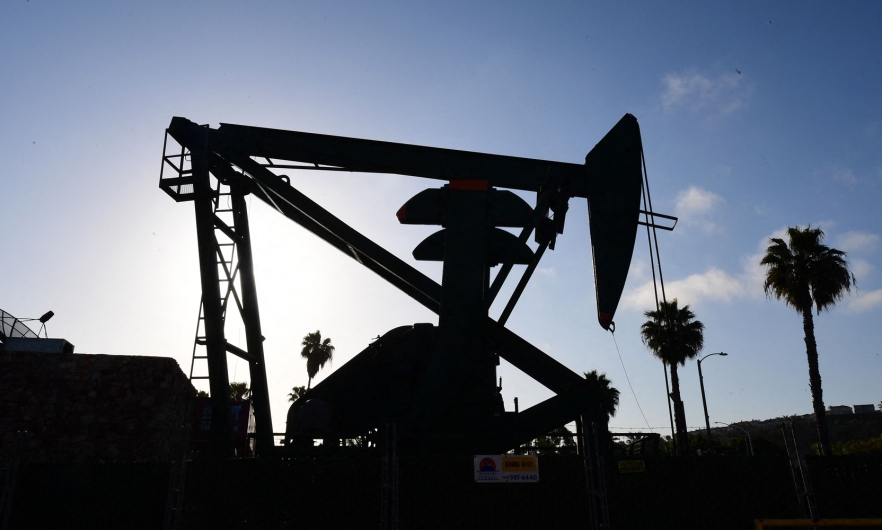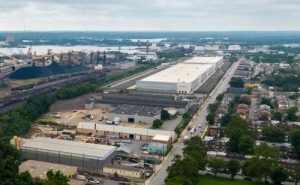What’s Next for the EPA Under Trump?
If past is prologue, federal environmental protections may see a rollback—but state and local efforts could stem the damage.

Frederic J. Brown/AFP via Getty
With changes in presidential administrations come changes in myriad policies that can affect public health. Tom Burke, professor emeritus in Health Policy and Management, has seen this firsthand.
Before joining the Hopkins faculty, Burke, PhD, MPH, was deputy health commissioner for the State of New Jersey and director of science and research for the New Jersey Department of Environmental Protection. He witnessed changes when the Reagan administration rolled back federal regulations—and how the state stepped up in response. More recently, as a top official with the Environmental Protection Agency during the Obama administration, he saw progress in environmental policies, such as the Clean Power Plan, that were then rolled back during the first Trump administration.
In this Q&A, adapted from the December 2 episode of Public Health On Call, Burke shares his concerns as the second Trump administration takes shape. Burke explains how the politicization of climate change and the disempowerment of scientists and agencies could create lasting impacts to the environment and human health—and why he’s hopeful that policymakers and scientists can galvanize around innovation and local action.
You were there when the Obama administration transitioned to the Trump administration. What effects did you see on environmental protection?
There were profound effects. It was clear that rolling back regulations was an agenda item for the new administration. But even more troubling was the denial of science. Imagine being EPA’s head scientist and having science denial and climate change denial being a theme. Imagine seeing control of the agency transition to a coal lobbyist, to the carbon industry, to those who deny science and advocate increased use of fossil fuels.
When I returned to Hopkins, I devoted my research for a while to tracking the changes. There were rollbacks in regulations and policies. Probably the most immediate and profound was to withdraw from the Paris Agreement.
But there were rollbacks, too, that people forget about—on safe drinking water, on chemicals, on the protection of our water resources. The Clean Power Plan to incentivize the shift to renewable energies was cast aside. In addition, there were tremendous cuts in funding with emphasis on certain types of research, like climate change research. These had profound effects that will take decades to undo.
What are your thoughts about climate change in this era?
Regardless of your political background, we’ve all seen the increase in extreme climate events. Climate change is real. It is profound.
The Clean Energy Rule and the Inflation Reduction Act, which aim to improve our resilience to climate change, are very important, but now we see those potentially in the crosshairs of a deregulatory thrust and a turning back of Biden administration policies.
I have incredible confidence in the federal government’s scientific workforce and in the senior executive service and their leadership. But that is threatened, too, by the staffing of the upper ranks of our science agencies with political appointees who agree with downsizing, deregulation, and cost cutting. The appointment to agencies like the Department of Health and Human Services, which includes the CDC and FDA, and the departments of Energy and Commerce, of leaders who seem to be pro-industry, pro-fossil fuel, and anti-regulation could be a threat to our environmental health future.
And there’s been, as we’ve discussed in the past, a shift toward a more conservative Supreme Court that apparently seeks to limit the EPA’s authority, particularly its public health assessment authorities.
Donald Trump has nominated former Congressman Lee Zeldin to head the EPA. What do you expect from him?
He’s apparently a climate change denier. He represented the Hamptons [New York]—folks who surely saw the impact of Superstorm Sandy—yet he is committed to deregulation, cutbacks, and the promotion of the carbon industry and the petrochemical complex.
In addition, most EPA administrators have tremendous experience and a track record in environmental decision-making and running large agencies. This nomination is a real departure.
Do your experiences from past administrations give you any hope about science in the years ahead?
I hate to say there’s a silver lining, because things are lining up to be a real challenge for public health, but I’m old enough to have been in a senior scientific position with the New Jersey Department of Environmental Protection when the Reagan administration took over. We saw similar attempts to downsize the EPA, to change the science advisory board, to remove the independence of scientists, and to deregulate.
Those were grim times. EPA was ineffective and in turmoil. But the states rose to the challenge, and they became hotbeds for innovation.
In New Jersey, we moved ahead with laws that became national models on chemical emissions. The movement toward ending ocean dumping began in the ’80s. There was progress during a time of challenge.
My hope and my message to environmental scientists and others is that public health is at its best when things are at their worst. I am an optimist. I experienced through the Reagan administration that innovation is important, and that the business community needs that progress just as much as the rest of us need environmental protections.
As we come together as a scientific community to weather this storm, it will force a big rethink, and we’ll do a better job. Many of our environmental statutes go back to the ’70s, and we have new emerging problems like forever chemicals, plastics, and climate change that beg us to move forward with better scientific solutions.
What do you tell your students?
One of the most poignant moments for me was teaching and feeling the mood shortly after the election. Here are students devoting their lives to environmental protection and public health, and they’re getting this message of downsizing, of doing away with research, of ignoring science, and it’s a tough time.
I’m from Jersey, where when the going gets tough, the tough get going. So I told them, this is a roller coaster ride; we’ve seen it before. We have to do a better job at reaching all Americans so they understand our role and the importance of science to protect their environment, their health, and their communities. That’s our challenge. And we’ve got work to do.
This interview has been edited for length and clarity.




